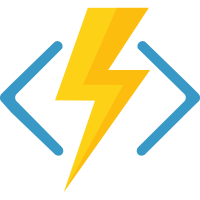| Branch | Status |
|---|---|
| master | |
| v1.x |
The Azure Functions Core Tools provide a local development experience for creating, developing, testing, running, and debugging Azure Functions.
NOTE: This package only currently works on Windows, since the underlying Functions Host is not yet cross-platform. You can upvote this GitHub issue if you're interested in running on other platforms: make the Azure Functions Core Tools cross platform.
To install globally for Windows:
npm i -g azure-functions-core-tools
To install globally for non-Windows platforms:
npm i -g azure-functions-core-tools@core
This installs a higher beta version of the cli, so it is highly recommended that while using the core tag, you enable the beta runtime in function app settings, otherwise you may not see the same results as running locally.
There is a dependency on the .NET Core tools for the cross platform support. You can install these here.
The package sets up the following global aliases:
func
azfun
azure-functions
Commands have the following basic structure:
func [context] [context] <action> [-/--options]
Output can be found at %temp%\LogFiles.
azure For Azure login and working with Function Apps on Azure
function For local function settings and actions
functionapp For local function app settings and actions
host For local Functions host settings and actions
settings For local settings for your Functions host
func init Create a new Function App in the current folder. Initializes git repo.
func run Run a function directly
Actions in the "azure" context require logging in to Azure.
func azure
Usage: func azure [context] <action> [-/--options]
Contexts:
account For Azure account and subscriptions settings and actions
functionapp For Azure Function App settings and actions
storage For Azure Storage settings and actions
subscriptions For Azure account and subscriptions settings and actions
Actions:
get-publish-username Get the source control publishing username for a Function App in Azure
set-publish-password Set the source control publishing password for a Function App in Azure
login Log in to an Azure account. Can also do "func azure login"
logout Log out of Azure account. Can also do "func azure logout"
portal Launch default browser with link to the current app in https://portal.azure.com
func azure account
Usage: func azure account <action> [-/--options]
Actions:
set <subscriptionId> Set the active subscription
list List subscriptions for the logged in user
func azure functionapp
Usage: func azure functionapp <action> [-/--options]
Actions:
enable-git-repo Enable git repository on your Azure-hosted Function App
fetch-app-settings Retrieve App Settings from your Azure-hosted Function App and store locally. Alias: fetch
list List all Function Apps in the selected Azure subscription
list-functions List functions in a given function app on azure
logstream Show interactive streaming logs for an Azure-hosted Function App
publish Publish the current directory contents to an Azure Function App
The func azure storage list command will show storage accounts in the selected subscription. You can then set up a connection string locally with this storage account name using func settings add-storage-account.
func azure storage
Usage: func Azure Storage <action> [-/--options]
Actions:
list List all Storage Accounts in the selected Azure subscription
Actions that are not in the "azure" context operate on the local environment. For instance, func settings list will show the app settings for the current function app.
func settings
Usage: func settings [context] <action> [-/--options]
Actions:
add Add new local app setting to appsettings.json
add-storage-account Add a local app setting using the value from an Azure Storage account. Requires Azure login.
decrypt Decrypt the local settings file
delete Remove a local setting
encrypt Encrypt the local settings file
list List local settings
func function
Usage: func function [context] <action> [-/--options]
Actions:
create Create a new Function from a template, using the Yeoman generator
run Run a function directly
For consistency, the func init command can also be invoked via func functionapp init.
func functionapp init
CurrentDirectory: is the default directory the functions runtime looks for functions in.%TMP%\LogFiles\Application\Functions: is the default directory for logs. It mirrors the logs directory on Azure as well.
This project is under the benevolent umbrella of the .NET Foundation and is licensed under the MIT License
This project has adopted the Microsoft Open Source Code of Conduct. For more information see the Code of Conduct FAQ or contact [email protected] with any additional questions or comments.
For questions on Azure Functions or the tools, you can ask questions here:
File bugs at Azure Functions Core Tools repo on GitHub.
